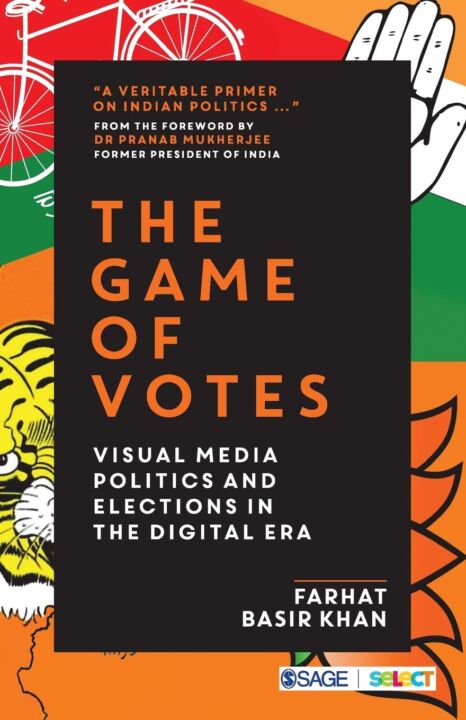Book Summary: The Game Of Votes
Taking the reader on a roller coaster ride, the game of votes showcases the full spectrum of the key actors and stars of the electoral arena, the rise and fall of political parties, the role of the digital and technology platforms, and the emergence of fake news impacting election outcome in India and across the world.
The book is a veritable prime on Indian politics, as it runs through the entire history of Indian polity and provides insights into how political parties gradually shifted from campaigning on their own to hiring top-notch advertising agencies. It tells the story of how Modi won the election in 2014 and repeated an exceptional performance in 2019. It also gives a bird’s eye view of how Barack Obama and Donald Trump ran their election campaigns and how to understand critical developments in political communication.
The book provides glimpses of international politics in the US and Europe and covers important developments in Egypt and South East Asia, drawing comparisons between the Western world with the fast-changing developments in India. This book brings the readers face-to-face with the changing dynamics of election campaign and democracy. This is the inside story behind the game of votes in India.
Book Review: The Game Of Votes
The basic premise of The Game of Votes by Farhat Basir Khan rests on the calculation made to differentiate successful election practices from unsuccessful ones. It is filled with amazing insider details about every big campaign in the last forty years. It will have you grinning and shaking your head at some of the strategy that various campaign analysts came up with. The author has obtained amazing access. This history familiarizes the reader with the thought process behind the decisions that campaigns make to identify & motivate likely voters. The second half of the book lays out in detail the sophisticated data analysis employed to great success in recent elections.
The Game Of Votes is basically a history of Indian research and practice of electoral politics. It begins modestly with quantitative research on elections and political campaigning in India. From the early elections in India to the present day, Author Farhat Basir Khan explains how changes in technology, media and developments in the marketing/public opinion industry have reshaped Indian politics.
What The Game Of Votes demonstrates is that commercial interests now have a tremendous amount of information about us and political parties and candidates are now learning how to use that information to press our buttons. On one hand it is a staggeringly cynical way to look at politics.
If you give the right data to a modern campaign operative she/he can identify the type of party/candidate/message will best appeal to you. It’s important to remember that this is not a one-to-one analysis. Buying Pepsi does not make you a Democrat, but a person who lives in your style of neighbourhood, with a luxury smartphone plan and premium cable tends to vote for candidates X, and prefers lower taxes, and worries about public safety issues. So instead of getting the mail item about the environment you get the one about policing. It’s clever, and vaguely terrifying.
Author lays out the history and how Indian politics has reached this point. The ubiquity of consumer data and the constant expansion of voter database information means that things are bound to change. The observations and some of the anecdotes are fascinating.
This is a narrative, not a how-to. It is not just a book about numbers. It is a book about social history, changing demographics and the choices made by human beings hoping to influence other human beings. Author Farhat Basir Khan provides a fascinating overview of how Indian political campaigns have changed, and how they will likely continue to evolve.





